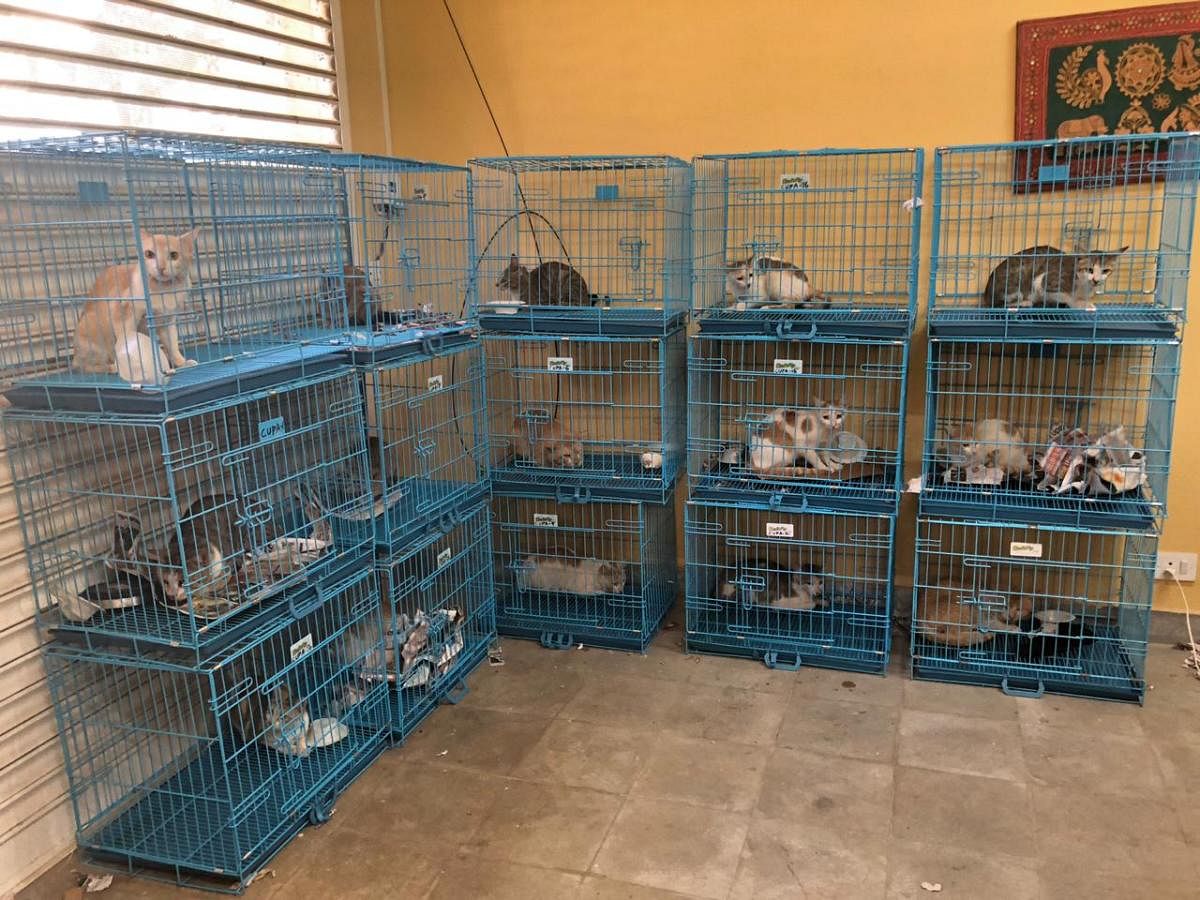
Cats are being abandoned in large numbers during the pandemic and it is tougher to find homes for them than for stray dogs, say Bengalureans.
To counter the problem, organisations like CUPA have been carrying out a cat sterilisation programmes in the city. To curb the growing population of stray cats in the city, the organisation has been conducting several Trap-Neuter-Return (TNR) events since 2018.
If cats are not sterilised at the right time, it can lead to an array of problems, says Ajay Arun, head of projects at CUPA. “A female cat gets pregnant four or five times a year with three to eight kittens per litter. This takes a huge toll on the mother’s health. It leads to increased abandonment of kittens and spread of viral infection among unvaccinated cats, causing severe illness and sometimes death,” he explains.
TNR aims to sterilise as many cats as possible in a target community. The volunteer-driven project involves a team consisting of a manager, veterinary doctor, attenders and supervisors on the field working along with residents of gated communities to catch, neuter and provide post-operative care to stray cats.
Animal lovers feel more awareness is needed for the welfare of cats. “The number of stray cats near my house have definitely increased during the pandemic,” says Aditya G, a resident of RT Nagar. “Many had abandoned their cats during the lockdown and the lack of awareness about spaying cats is worrying,” he tells Metrolife.
Shakila Banu, resident of Okalipuram, plans to get the cats in her locality neutered soon. “The stray cat near my house has got pregnant twice in the last six months and this is severely affecting her health,” she says.
“Organisations that work with animals and NGOs need to act soon so that cats don’t suffer,” she adds.
CUPA has seen a considerable increase in requests from Residents Welfare Associations (RWA) to neuter community cats, says Ajay.
“Over 20 RWAs have approached us and implemented the programme. Many of them have been consistent in carrying out TNR every year to keep a check on the population,” he adds.
Once the community reaches out to CUPA with their request, the cats are caught through specialised techniques. These cats are then transferred to holding cages and prepped for surgery.
“Resident volunteers provide accommodation and food while the cats await surgery. They are instructed to put the cats on a fast for a period of 12 hours before the surgery and then provide care for up to three days post the surgery. All cats that have been sterilised receive ear notches to identify they’ve been neutered to prevent recapture for sterilisation,” explains Ajay.
Under the TNR programme, CUPA charges Rs 1,500 for the sterilisation of one cat. “These are subsidised charges which include surgery, anti-rabies vaccine, long-acting antibiotic shots and an ear notch. If groups are unable to afford it, we will help them,” says Ajay.
To get your community cats sterilised, contact cupaprojects@cupaindia.org